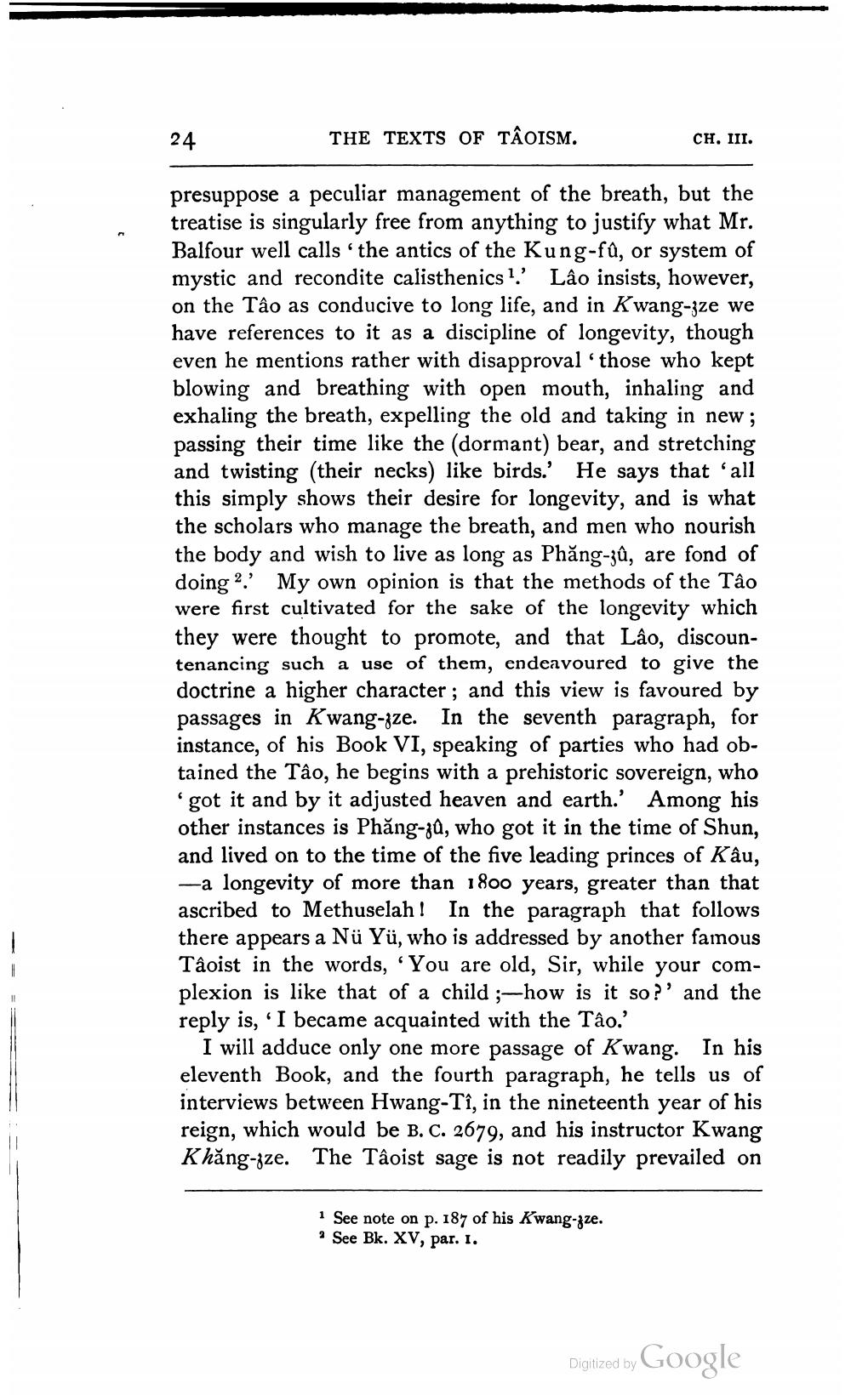________________
24
THE TEXTS OF TÂOISM.
CH. III.
presuppose a peculiar management of the breath, but the treatise is singularly free from anything to justify what Mr. Balfour well calls the antics of the Kung-fû, or system of mystic and recondite calisthenics 1.' Lâo insists, however, on the Tão as conducive to long life, and in Kwang-ize we have references to it as a discipline of longevity, though even he mentions rather with disapproval those who kept blowing and breathing with open mouth, inhaling and exhaling the breath, expelling the old and taking in new ; passing their time like the (dormant) bear, and stretching and twisting (their necks) like birds.' He says that all this simply shows their desire for longevity, and is what the scholars who manage the breath, and men who nourish the body and wish to live as long as Phăng-zû, are fond of doing 2' My own opinion is that the methods of the Tâo were first cultivated for the sake of the longevity which they were thought to promote, and that Lâo, discountenancing such a use of them, endeavoured to give the doctrine a higher character; and this view is favoured by passages in Kwang-zze. In the seventh paragraph, for instance, of his Book VI, speaking of parties who had obtained the Tâo, he begins with a prehistoric sovereign, who 'got it and by it adjusted heaven and earth. Among his other instances is Phăng-zů, who got it in the time of Shun, and lived on to the time of the five leading princes of Kâu, -a longevity of more than 1800 years, greater than that ascribed to Methuselah! In the paragraph that follows there appears a Nü Yü, who is addressed by another famous Tâoist in the words, 'You are old, Sir, while your complexion is like that of a child ;-how is it so?' and the reply is, 'I became acquainted with the Tâo.'
I will adduce only one more passage of Kwang. In his eleventh Book, and the fourth paragraph, he tells us of interviews between Hwang-Tî, in the nineteenth year of his reign, which would be B. C. 2679, and his instructor Kwang Khăng-gze. The Tâoist sage is not readily prevailed on
1 See note on p. 187 of his Kwang-tze.
See Bk. XV, par. I.
Digitized by Google




